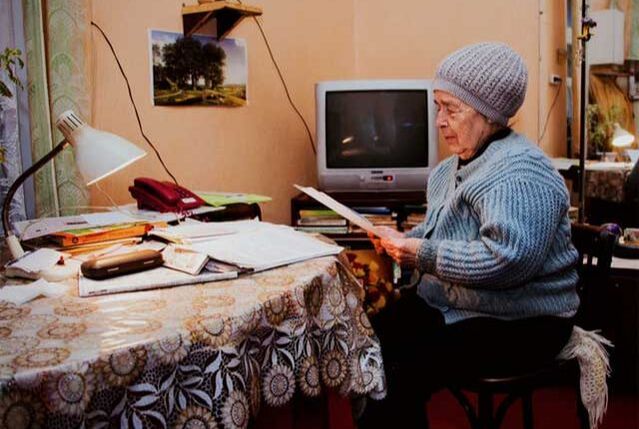Seniors with dementia: Finance tips & tricks (for the memory-challenged)
By Patricia Pinsk
|
It’s easy to joke that “you’re having a senior’s moment” if you forget where you placed your keys (only to find them in the freezer stuck to the frozen peas).
You’re scared. You know deep down something is off. You frequently feel confused or forgetful. You’re worried about things, especially your finances, more than you used to. You hear stories about how your friends are being scammed all the time and wonder if you’re next. Or maybe it’s happened. Maybe sending money to your long-lost nephew in the form of gift cards wasn’t a good idea (you’ve yet to get a thank you note). |
How do you get help without looking like an old fool?
How do you maintain your basic freedoms when it’s getting harder to do simple tasks, like paying your bills on time?
Seniors with dementia: If you (or someone you know) shows symptoms, now’s the time to plan. Let’s look at what you need to do to keep your financial independence and security — even in the face of dementia.
How do you maintain your basic freedoms when it’s getting harder to do simple tasks, like paying your bills on time?
Seniors with dementia: If you (or someone you know) shows symptoms, now’s the time to plan. Let’s look at what you need to do to keep your financial independence and security — even in the face of dementia.
In this article:
- Early stage dementia and managing money: 5 “seniors’ moments” to note
- How can seniors deal with finances?
- Seniors with dementia and financial abuse: How do you protect a parent with dementia?
- Financial behaviors that predict dementia: The importance of Whealthcare
- Finances for dementia sufferers: Why the future has never seemed better
Early stage dementia and managing money: 5 “seniors’ moments” to note
|
Have you (or a family member) become more withdrawn, irritable and less willing to socialize?
Are you constantly forgetting basic words, or finding you have to leave notes to yourself all over your home? If so, you may have dementia. Awareness is key with early stage dementia and managing money. Knowing what’s going on makes it easier to adjust your financial planning and security accordingly. |
Don’t jump to conclusions. See your doctor if you suspect you have early stage dementia. Common early stage dementia symptoms include:
Once you confirm whether you have dementia, the next step is to set yourself up to better deal with your regular financial tasks. You want to prevent unnecessary financial fiascos.
Let’s look at how to get started.
- Social activity withdrawal. It’s difficult to follow things like:
- group conversations
- simple board or card games
- Short term memory issues. It’s a challenge to remember:
- where you placed things, like your keys or wallet
- what you need to purchase when out shopping, so you overspend
- what’s your PIN number for your bank or credit card
- Simple task challenges. It’s an effort to:
- pay bills on time
- navigate a website, and you blindly click on things
- calculate how much to leave for a tip
- show up for medical appointments
- Visual-spatial tasks. It’s a challenge to:
- drive from A to B, as nothing looks familiar
- read, as it’s difficult to remember the meaning of some words
- navigate, as maps and instructions are confusing
- Fatigue or emotional change. It’s difficult to:
- stay energized, as you’re tired all the time
- stay positive, as you feel cranky or depressed
- control your emotions, as everything overwhelms you
Once you confirm whether you have dementia, the next step is to set yourself up to better deal with your regular financial tasks. You want to prevent unnecessary financial fiascos.
Let’s look at how to get started.
How can seniors deal with finances?
|
As a senior, it’s great that you want to maintain full control of your finances for as long as possible. While you’re still able, get your finances in order.
First, simplify your investments, make a list of your assets, and note locations of all the applicable paperwork (preferably it’s in a safety deposit box). To ensure people make the best decisions for you when you're no longer capable, you need to determine who you can trust with your money. This is an enormous leap of faith. |
It means turning your bank accounts and property deeds into shared accounts and joint possessions with a family member or trusted friend.
You can also go through your lawyer to draft up a Power of Attorney (PoA). The PoA is a legal document that gives one or more individuals power to manage your finances and property for you. It can be anyone.
Note that there are 2 distinct types of PoA’s. Ensure you set up an enduring power of attorney. If you become mentally incompetent and require help to look after your finances, this type remains valid (it endures).
You can either give broad powers or set limits on the power you give the person defined by your PoA. The PoA can come into effect immediately, or after a specific set of circumstances occur (for example, you're no longer able to look after your personal finances). It all depends on how you have your lawyer write your PoA.
Before you assign a PoA, ask your lawyer, and the person named in this document if they plan to act in your best interest. Legally, they must do so, but not everyone follows rules.
|
Have your lawyer explain all the risks and benefits of your PoA document.
The last thing you want is to give someone free rein over your finances if they don't care about your welfare and only do the bare minimum. A PoA isn’t a legal requirement, but it makes things easy for others to step in and help you. |
Your PoA has complete access to your finances, and can assist you to:
People also ask:
Q. To help seniors deal with finances, what happens if the designated person in the PoA takes advantage of the situation?
A. You, or a trusted family member or friend can hire an attorney with experience in elder and/or disability law. They can help you sort things out.
Unfortunately, not all seniors look after their finances in time. With a parent, this is a greater challenge because of the emotional attachment.
Let’s look at what you can do to guide them in the right direction before it’s too late.
- make bill payments
- do day-to-day banking or renew investments on your behalf
- buy or sell real estate on your behalf
- borrow money on your behalf
- take on any other responsibilities listed in your PoA document
People also ask:
Q. To help seniors deal with finances, what happens if the designated person in the PoA takes advantage of the situation?
A. You, or a trusted family member or friend can hire an attorney with experience in elder and/or disability law. They can help you sort things out.
Unfortunately, not all seniors look after their finances in time. With a parent, this is a greater challenge because of the emotional attachment.
Let’s look at what you can do to guide them in the right direction before it’s too late.
How to get elderly parents to deal with finances?
|
If you want to get elderly parents to deal with their finances, you need to have tough conversations with them now.
It becomes more challenging and frustrating to motivate them once dementia progresses. Dementia makes the elderly paranoid. Everyone, especially family, becomes “the enemy” once dementia sets in. The trick is to first get elderly parents to talk about things that relax them, like a fun memory. Then gently bring up the subject of their finances. Do so in more of a question that makes them think. |
You want their decisions to feel like their decisions.
Otherwise, you’ll feel like Sisyphus, in a never-ending uphill battle.
Note that even if things go smoothly, and your elderly parents willingly set you up to have access to their accounts, they can throw you a curve-ball. The elderly are smart when they need to be — it’s their super power. When paranoia, a symptom of dementia kicks in, that’s a dangerous mix.
Such is the case with one particular couple that didn’t set themselves up properly. Their family had spent years gently coaxing them to get their finances in order with a designated lawyer and Power of Attorney. When their accounts were easily accessible, they (at 85, and 81 respectively) moved across the country. They didn’t “have the energy” to reset things up beyond the basics after their move.
They sit in a position where no one can easily step in and help them with their finances. They no longer have a designated PoA (the original designated person declined the position after they moved), or even an executor of their state.
They are in a dangerous position, as they both now suffer from dementia, and are often making poor financial decisions.
So how do you protect your elderly parents from ending up in a vulnerable position?
How do you protect someone that doesn't want help, but needs it?
Luckily there are a few things you can do. Let’s explore those options.
Otherwise, you’ll feel like Sisyphus, in a never-ending uphill battle.
Note that even if things go smoothly, and your elderly parents willingly set you up to have access to their accounts, they can throw you a curve-ball. The elderly are smart when they need to be — it’s their super power. When paranoia, a symptom of dementia kicks in, that’s a dangerous mix.
Such is the case with one particular couple that didn’t set themselves up properly. Their family had spent years gently coaxing them to get their finances in order with a designated lawyer and Power of Attorney. When their accounts were easily accessible, they (at 85, and 81 respectively) moved across the country. They didn’t “have the energy” to reset things up beyond the basics after their move.
They sit in a position where no one can easily step in and help them with their finances. They no longer have a designated PoA (the original designated person declined the position after they moved), or even an executor of their state.
They are in a dangerous position, as they both now suffer from dementia, and are often making poor financial decisions.
So how do you protect your elderly parents from ending up in a vulnerable position?
How do you protect someone that doesn't want help, but needs it?
Luckily there are a few things you can do. Let’s explore those options.
Seniors with dementia and financial abuse: How do you protect a parent with dementia?

As someone that has personal experience dealing with elderly parents with dementia, it's an ongoing concern trying to protect them. For years I've warned them about the risks of answering emails and phone calls from unrecognized sources.
I started doing this well before dementia became an issue — so this information is a long-term, rather than a short-term memory byte.
One day, someone phoned them up. He identified himself as, “Steve from Microsoft”.
He stated that he noticed an issue with their computer. Would they mind going to their computer and clicking on a window for a software program that he “needed to install to fix the issue”.
Like blinded sheep, my parents walked to their computer, and clicked on the new icon Steve told them about. Windows started rapidly opening and closing. At this point Steve got frustrated, as he couldn’t find what he was looking for. He asked my parents “Do you do any online banking?”
That's when the light switch went off in my father’s brain. He stated, “You know what, I think I have to call my tech support” (i.e. me). He promptly hung up and surprisingly turned off his computer. He sheepishly called me and relayed the story.
I asked him: “Do you think it’s normal for Microsoft to call you? When was the last time Whirlpool called you to ask how your refrigerator was doing?”
There was a brief pause.
My father realized he just let someone hack into his computer. FORTUNATELY there was nothing super private on his computer, as he doesn’t do online banking. I researched a company that could make a quick house call to get his computer up and running again, sans virus hack. All was well in the universe after that (at least for a while).
Beyond instilling the fear of god not to answer phishing emails or spam phone calls, there’s no guarantee that common sense kicks in when it needs to. You can hope elderly parents won’t do something that causes bankruptcy.
Or for more of a guarantee, there are a few steps you can take to protect a parent with dementia
I started doing this well before dementia became an issue — so this information is a long-term, rather than a short-term memory byte.
One day, someone phoned them up. He identified himself as, “Steve from Microsoft”.
He stated that he noticed an issue with their computer. Would they mind going to their computer and clicking on a window for a software program that he “needed to install to fix the issue”.
Like blinded sheep, my parents walked to their computer, and clicked on the new icon Steve told them about. Windows started rapidly opening and closing. At this point Steve got frustrated, as he couldn’t find what he was looking for. He asked my parents “Do you do any online banking?”
That's when the light switch went off in my father’s brain. He stated, “You know what, I think I have to call my tech support” (i.e. me). He promptly hung up and surprisingly turned off his computer. He sheepishly called me and relayed the story.
I asked him: “Do you think it’s normal for Microsoft to call you? When was the last time Whirlpool called you to ask how your refrigerator was doing?”
There was a brief pause.
My father realized he just let someone hack into his computer. FORTUNATELY there was nothing super private on his computer, as he doesn’t do online banking. I researched a company that could make a quick house call to get his computer up and running again, sans virus hack. All was well in the universe after that (at least for a while).
Beyond instilling the fear of god not to answer phishing emails or spam phone calls, there’s no guarantee that common sense kicks in when it needs to. You can hope elderly parents won’t do something that causes bankruptcy.
Or for more of a guarantee, there are a few steps you can take to protect a parent with dementia

6 steps to take to protect seniors with dementia from financial abuse:
1. Notify their doctor of suspected symptoms
1. Notify their doctor of suspected symptoms
- They can monitor and assess their level of dementia
- They can determine if other issues affect their financial-management abilities, such as side effects from medications, or depression.
- It’s not foolproof, but it limits some spam calls
- Also install proper antivirus and anti-malware software to auto-run
- The free ones have more spam and security issues
- Convince them you need to set things up from your end (you’ll need their credit card info)
- You can then select purchases for them and monitor these spending activities
- If you get this info, it helps you determine where you need to step in, should they need help
Prepare early to manage seniors' money (11 helpful tips)
If you’re lucky, you’ll be able to prepare early to manage seniors' money.
Try to get these things in place before they are a necessity:
Beyond getting things in place from your end, financial institutions are getting better at protecting senior’s financial situations. Whealthcare and EverSafe are a few such things to get familiar with.
Try to get these things in place before they are a necessity:
- Teach seniors early on how to identify scams
- Get them to simplify their investment portfolio and financial accounts.
- Use credit monitoring services and annual credit reports
- Help them with money management and taxes.
- Create a spending plan
- Convince them to get a trusted PoA
- Convince them to get an up-to-date Will
- Convince them to put withdrawal restrictions on their credit/bank cards
- Get access to financial accounts
- Locate important documents
- Keep family informed
Beyond getting things in place from your end, financial institutions are getting better at protecting senior’s financial situations. Whealthcare and EverSafe are a few such things to get familiar with.
Financial behaviors that predict dementia: The importance of Whealthcare
|
Studies show that years before any other traditional signs or symptoms of dementia appear (like memory loss, social activity withdrawal), abnormal financial decision-making happens. Shifts in financial behavior help predict dementia.
Dr. Karlawish, who coined the phrase “Whealthcare” introduced the concept of getting bankers, financial analysts and doctors to work together. Through his work, he unites health and wealth industries. Financial experts help pinpoint behavioral markers to diagnose dementia (or other cognitive impairments) long before dangerous situations occur. |
Professionals in the financial industry can see signs of impairment long before medical practitioners (or even the person affected) take notice. As Dr. Jason Karlawish states:
“There's something about financial transactions that are so sensitive to difficulties with thinking, concentrating, paying attention, learning new information that often they're the first things when you look back, where the signs were there before the repetitive questions, the repetitious stories, the burned dinner, etc,”
Besides Whealthcare becoming common concepts, software such as EverSafe is now being used within financial industries to help protect seniors from financial fraud and identity theft.
The trick is to ensure these or similar measures are in place with your (or a family member's) health and financial providers.
Finances for dementia sufferers: Why the future has never seemed better
|
Hopefully, you know how to get your (or a family member’s) finances in order.
Setting up finances for dementia sufferers is never easy. The good news: some industry leaders are already one step ahead of you with advances in software and financial tracking analytics. They’ve simplified some tasks. You barely have to think about financial fraud and identity theft once you ensure the proper systems are in place. |
Start familiarizing yourself with concepts like Whealthcare. Ask your financial institution what software they use to protect seniors, especially those with dementia. Ask your friends of family if they can recommend a good lawyer to help set up a PoA that meets your needs.
Yes, at first it's overwhelming, not to mention frustrating. Every step of the process can feel like a huge hurdle.
The secret is to:
Remember, you don't have to do this on your own.
Yes, at first it's overwhelming, not to mention frustrating. Every step of the process can feel like a huge hurdle.
The secret is to:
- Make a list of the things you need to accomplish
- Note questions you need to ask when speaking to industry professionals
- Ask for help when you need it
Remember, you don't have to do this on your own.






